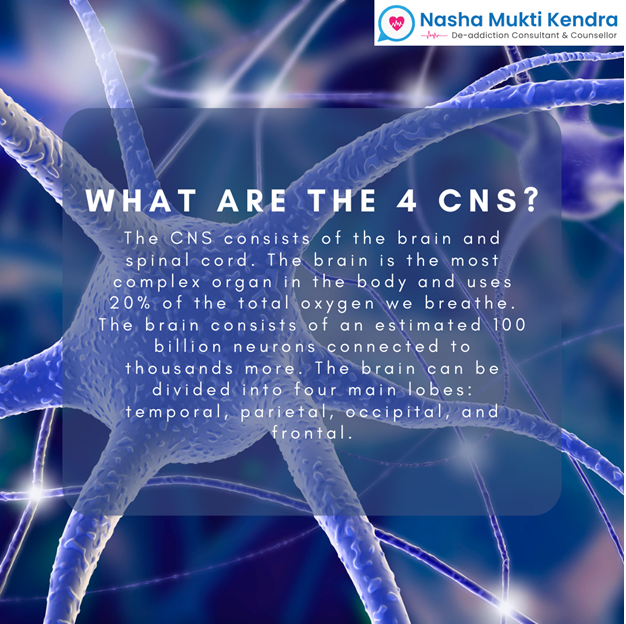CNS stimulants are a class of medications that have significant therapeutic applications in various fields of medicine. These drugs play a vital role in treating conditions like attention deficit hyperactivity disorder (ADHD), narcolepsy, and cognitive impairments. In this blog, we will delve into the classification of CNS stimulants, exploring their different categories and providing a detailed description of their mechanisms of action.
Amphetamines: Powerhouses of CNS Stimulation
Amphetamines are one of the primary categories of CNS stimulants. These drugs work by increasing the release and blocking the reuptake of certain neurotransmitters, specifically dopamine and norepinephrine. Substances like dextroamphetamine, methamphetamine, and lisdexamfetamine fall under this classification. They are commonly prescribed for conditions such as ADHD and narcolepsy.
Methylphenidate Derivatives: Targeting Neurotransmitter Reuptake
Methylphenidate-based stimulants, including methylphenidate and dexmethylphenidate, are widely used in the treatment of ADHD. They function by inhibiting the reuptake of dopamine and norepinephrine, thus increasing the availability of these neurotransmitters in the brain. These drugs have a similar mechanism of action to amphetamines but differ in chemical structure and potency.
Non-Amphetamine Stimulants: Unique Alternatives
Non-amphetamine stimulants offer an alternative approach to CNS stimulation. Modafinil and armodafinil are prominent examples of this category. These medications are primarily used to treat excessive sleepiness associated with narcolepsy, obstructive sleep apnea, and shift work sleep disorder. While their exact mechanism of action is not fully understood, they are believed to promote wakefulness by influencing various neurotransmitters in the brain.
Therapeutic Applications: Targeting Specific Conditions
CNS stimulants have distinct therapeutic applications based on their efficacy and safety profiles. For ADHD treatment, amphetamine-based stimulants and methylphenidate-based stimulants are commonly prescribed. These medications help improve focus, attention, and impulse control in individuals with ADHD. Modafinil and armodafinil, on the other hand, are primarily used to address excessive daytime sleepiness in narcolepsy and sleep disorders.
Mechanisms of Action: Unraveling the Neurochemical Effects
Understanding the mechanisms of action of CNS stimulants provides insights into how these medications work within the brain. Amphetamines and methylphenidate-based stimulants primarily affect the neurotransmitters dopamine and norepinephrine, regulating their levels by inhibiting reuptake and increasing release. Modafinil and armodafinil, while not fully understood, have been found to influence neurotransmitters like dopamine, norepinephrine, and histamine.
Side Effects and Considerations: Balancing Benefits and Risks
CNS stimulants, like any medication, can have side effects and require careful consideration. Common side effects include increased heart rate, elevated blood pressure, insomnia, restlessness, and gastrointestinal disturbances. Precautions should be taken in patients with pre-existing cardiovascular conditions or a history of substance abuse. It is essential for healthcare professionals to monitor patients closely and adjust dosages as necessary.
Abuse Potential and Dependency
CNS stimulants have the potential for abuse and dependency, particularly amphetamines and methylphenidate-based stimulants. Misuse of these drugs can lead to addiction and withdrawal symptoms. Modafinil and armodafinil, however, are generally considered to have lower abuse potential and fewer withdrawal symptoms, making them preferred alternatives in certain cases.
CNS stimulants are a diverse group of medications that provide valuable therapeutic benefits in treating various conditions. Understanding their classification, mechanisms of action, and potential side effects is essential for healthcare professionals and patients alike. By differentiating amphetamines, methylphenidate derivatives, and non-amphetamine stimulants, we can gain insight into their distinct properties and applications. It is crucial to use these medications responsibly, considering the potential for abuse and side effects. With proper understanding and monitoring, CNS stimulants can be valuable tools in improving the quality of life for individuals with specific neurological and sleep-related disorders.
Get Nasha Mukti Kendra’s Help
Are you or a loved one struggling with substance abuse and seeking a way out? Look no further than Nasha Mukti Kendra, where we provide the utmost support and assistance in overcoming addiction. Our dedicated team of professionals, including the finest psychologists, is committed to helping individuals reclaim their lives from the clutches of substance abuse and achieve lasting recovery from CNS (Central Nervous System) stimulant addiction.
At Nasha Mukti Kendra, we understand the challenges and complexities associated with addiction. That’s why we have assembled a team of highly trained and compassionate psychologists who specialize in addressing the psychological aspects of substance abuse. Our psychologists are well-versed in evidence-based therapeutic approaches and have extensive experience in guiding individuals through the recovery journey. With their expertise, they provide personalized counselling sessions tailored to the unique needs of each individual.
One of the key strengths of Nasha Mukti Kendra is our widespread presence across the country. We have established centres in various locations, making it convenient for individuals from different regions to access our services. Whether you reside in a bustling city or a remote town, our centres are designed to provide a safe and supportive environment for individuals seeking recovery from CNS stimulant addiction.
When you choose Nasha Mukti Kendra, you are not alone in your journey towards sobriety. Our comprehensive approach includes a combination of counselling, therapy, support groups, and holistic interventions, all aimed at addressing the physical, emotional, and psychological aspects of addiction. Our goal is to equip individuals with the tools and strategies necessary to maintain long-term recovery and lead fulfilling lives free from substance dependency.
Don’t let addiction control your life any longer. Take the first step towards recovery by reaching out to Nasha Mukti Kendra today. Our dedicated team of professionals, including our finest psychologists, are here to provide the guidance and support you need on your path to a healthier and happier future. Remember, there is hope, and we are here to help you reclaim your life from addiction.
